Home
The nation greeted with well disguised enthusiasm the beginning of the general election campaign after the dissolution of parliament. David Cameron, the Prime Minister, stood at a little plywood lectern in Downing Street and said: ‘In 38 days you face a stark choice’ — between him and Ed Miliband, the leader of the Labour party. The Conservatives said they would create two million jobs in the next parliament. Their claims that Labour’s plans would cost each household £3,028 extra in taxes were met with baffled scepticism by the Institute for Fiscal Studies. Some business leaders indignantly rejected Labour’s claims on a poster that they supported the party’s opposition to a referendum on Britain’s membership of the EU. The Financial Times said that the Liberal Democrats wanted EU citizens residing in the United Kingdom to vote in any referendum on Britain’s membership, as the price of the party agreeing to a coalition with the Conservatives.
Opinion polls showed Labour and the Conservatives both receiving the support of around 34 per cent of voters. Even before the official start of the election campaign, David Cameron and Ed Miliband had gone on television to be interviewed separately by Jeremy Paxman and a studio audience. Mr Cameron confirmed that he had at least on one occasion eaten three Shredded Wheat at a sitting; Mr Miliband shrugged at the suggestion that he was just a ‘north London geek’. A week later, seven party leaders were invited to take part in a two-hour television debate. Alex Salmond, the former leader of the Scottish National Party, suggested that the BBC in Scotland should be run by the Scottish government. Scientists discovered that a recipe in the Anglo-Saxon Bald’s Leechbook for eye-salve made from garlic, leeks, wine and ox-gall had a strong anti-microbial effect.
The Supreme Court ruled that private letters written by the Prince of Wales to ministers could be published. A judge revealed that four girls who had been made wards of court and had their passports removed lest they go to Syria were pupils at Bethnal Green Academy in east London, which had been attended by three other girls who had succeeded in travelling to Syria to join the Islamic State. About 60 B&Q do-it-yourself shops are to close in the next two years. A survey of 16,193 people aged between 14 and 17 found that one in five had tried e-cigarettes. The M6 was closed because of horses straying onto it.
Abroad
Saudi Arabia joined in with air strikes as Yemen fell into civil war between the government and Iranian-backed Houthi rebels, who had reached the outskirts of Aden. One air raid hit an arms depot in Sanaa, the capital. President Abd Rabbuh Mansur Hadi of Yemen fled to Saudi Arabia. Al-Qa’eda in the Arabian Peninsula fought against both the government and the rebels. Sergei Lavrov, the Russian foreign minister, departed early from inconclusive talks with the Iranian foreign minister and the foreign ministers of the United States, Britain, France, Germany and China, on Iran’s nuclear programme. The Turkish government underwrote insurance for beekeepers against depredations by bears.
There was widespread speculation about what could have made Andreas Lubitz, the co-pilot of a Germanwings aircraft, apparently steer it into a mountain in the Alps, killing all 150 on board, while the pilot banged on the cockpit door demanding to be let back in after having left to go to the lavatory. A public prosecutor in Dusseldorf announced that, before becoming a pilot, Lubitz had received ‘treatment from a psychotherapist because of what is documented as being suicidal’ tendencies. A small stampede of Hindu pilgrims at Narayanganj in Bangladesh killed ten. Tim Cook, the chief executive of Apple, announced he was to donate most of his $800 million fortune to charitable causes.
President Thein Sein of Burma witnessed the signing of a draft ceasefire between the government and 16 rebel groups. A Malaysian court found a fishmonger guilty of murdering two British medical students in Borneo; the statutory penalty is hanging. In Singapore a 16-year-old was charged with distributing obscene material after posting a video online in which he called the late Lee Kuan Yew ‘a horrible person’. A statue of Cecil Rhodes at the University of Cape Town was boarded up while university authorities decided whether it should be removed. Liberia, Sierra Leone and Guinea experienced new outbreaks of Ebola fever despite a general reduction in cases. At a friendly match against Argentina in Maryland, supporters from El Salvador complained when the anthem of the Isle of Man was played by mistake. CSH
Got something to add? Join the discussion and comment below.
Get 10 issues for just $10
Subscribe to The Spectator Australia today for the next 10 magazine issues, plus full online access, for just $10.
You might disagree with half of it, but you’ll enjoy reading all of it. Try your first month for free, then just $2 a week for the remainder of your first year.

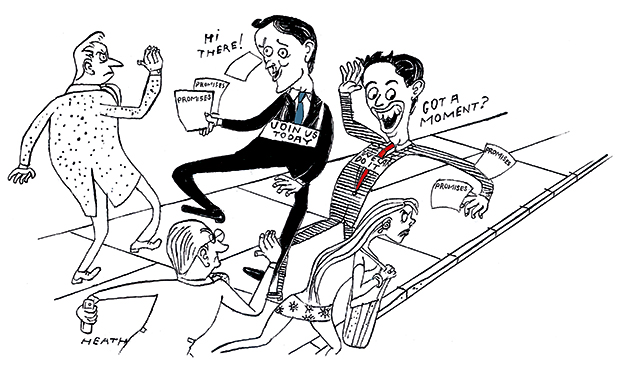

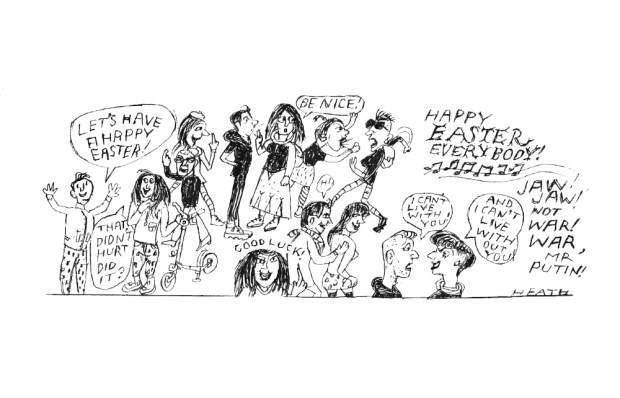
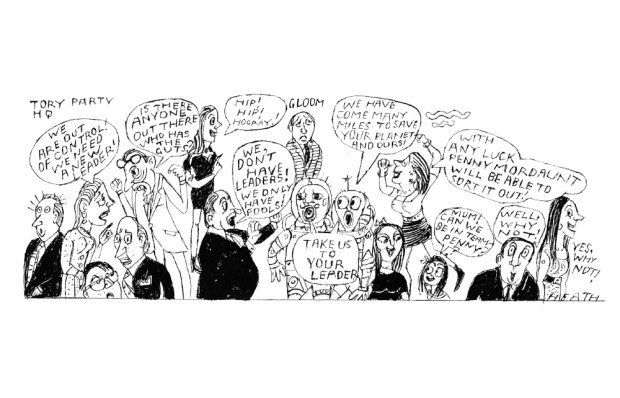

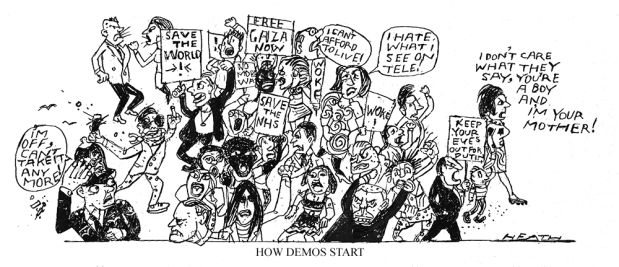
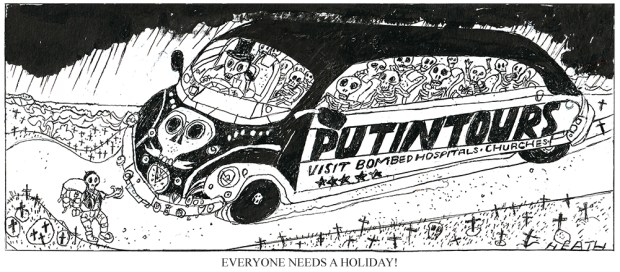






Comments
Don't miss out
Join the conversation with other Spectator Australia readers. Subscribe to leave a comment.
SUBSCRIBEAlready a subscriber? Log in